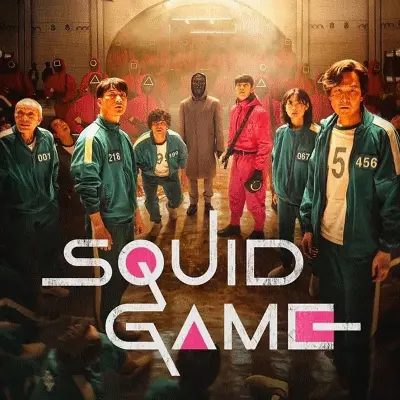Netflix and other streaming services are facing a translator shortage amid the worldwide popularity of Squid Game and other foreign titles
-

The Squid Game controversy last month over poor subtitling "drew a bright spotlight onto a rarely discussed industry at the heart of major international streaming platforms: language service providers, or LSPs," reports Rest of World's Andrew Deck. "These are companies that provide outsourced subtitling, captioning, and dubbing through a global network of contract subtitle translators, voice-over actors, translation editors, and sound mixers. It also underscored a looming concern for streaming services: a shortage of quality translators who can handle an increasingly global audience." As Deck notes, Squid Game was available with subtitles from 31 languages, plus 13 dubbed versions. "LSPs are critical to the distribution of that local content on a global scale. But because of a labor shortage and no viable automated solution, the translation industry is being pushed to its limits," says Deck. Deck adds that, based on his interviews, most streaming platforms are now at an inflection point, left to decide how much they are willing to sacrifice on quality to subtitle their streaming roster. “I can tell you literally, this industry will be out of supply over demand for the upcoming two to three years,” says David Lee, the CEO of Iyuno-SDI, one of the industry’s largest subtitling and dubbing providers. “Nobody to translate, nobody to dub, nobody to mix –– the industry just doesn’t have enough resources to do it.” But adding a slew of new translators will take time and better compensations. "Poor compensation is another reason for the labor shortage, making it difficult to keep good translators in the industry for long. Netflix pays $13 per minute for translation of Korean audio into English subtitles, but only a fraction of that figure ends up directly in the pockets of translators," says Deck. Another problem is that foreign-language shows like Squid Game are first translated into English, then translated to other languages based on the English translation. English templating, as this practice is called, "is the industry norm, not an anomaly," says Deck." That means non-English-speaking Netflix subscribers are often watching subtitles that have been filtered through a layer of English translation. LSPs use English templating as both a cost-cutting maneuver and a tool to scale. For instance, while there may be only a few dozen Korean-French translators working professionally on subtitling, there are plenty of Korean-English and English-French translators in the industry. Though English templating can be more efficient, translation researchers say that the process can deteriorate the quality. Others argue it’s problematic when English mediates expression into so many other languages."
TOPICS: Squid Game, Netflix, Dubbing, Subtitles
More Squid Game on Primetimer:
